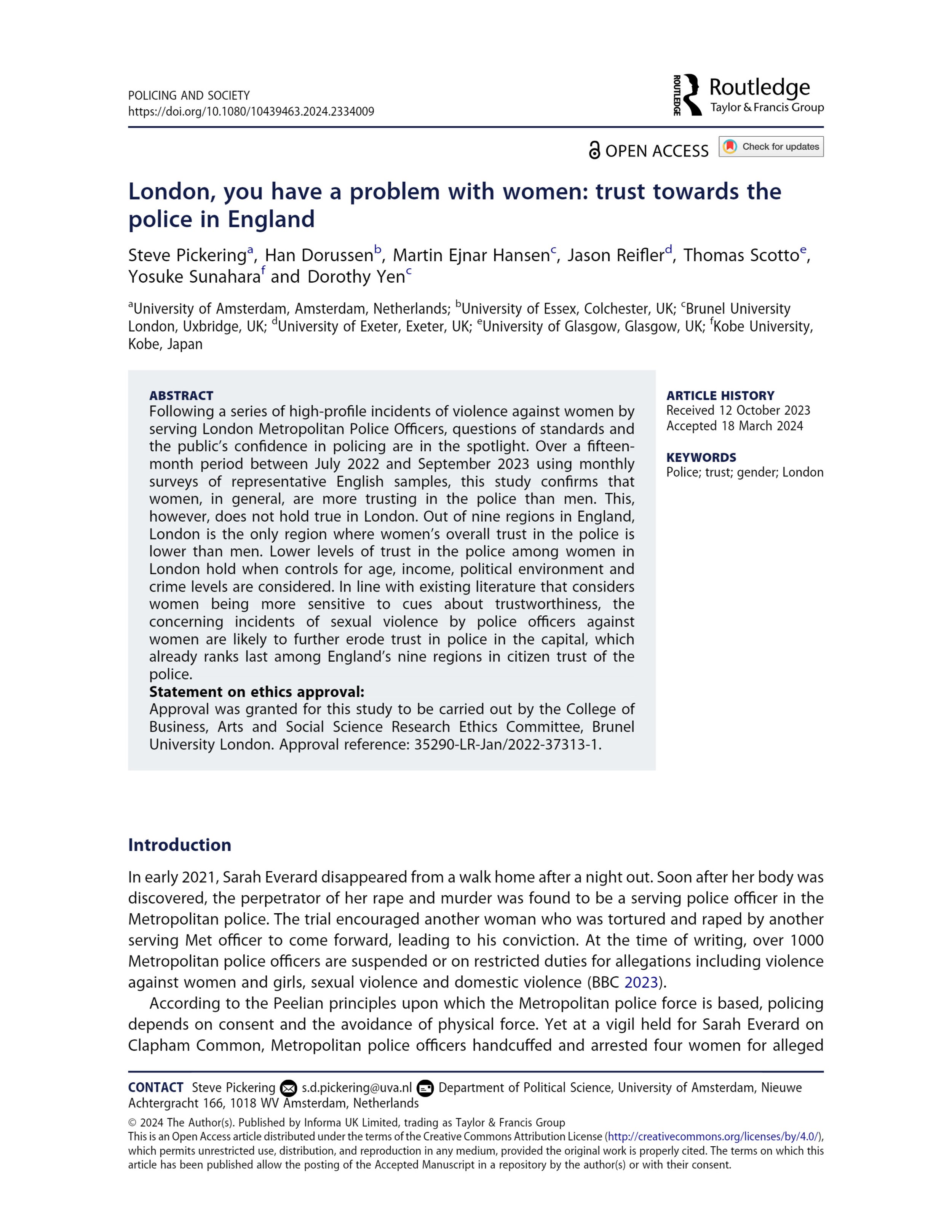By The CSA - Centre The Centre of expertise on child sexual abuse
In 2021, the CSA Centre was commissioned by the London Safeguarding Children Partnership (LSCP) to design and deliver a holistic package of support to improve the identification and response to child sexual abuse in three London boroughs: Barking & Dagenham, Ealing, and Hackney). The CSA Centre–LSCP programme consisted of three main strands of work, delivered virtually because of the restrictions imposed in response to the Covid-19 pandemic: 1. An in-depth training programme on child sexual abuse, delivered over a five-month period to train 60 social workers from the three boroughs as Child Sexual Abuse Practice Leads. 2. A one-day course on intra-familial child sexual abuse for multi-agency professionals across the three boroughs, delivered twice in each borough with a total of 256 professionals attending. 3. Individual support to help each of the boroughs improve their data collection in relation to child sexual abuse. Feedback from participants in either type of training revealed that it had increased their knowledge of child sexual abuse and their understanding of responsibilities and actions to support and protect children. In addition, most of those taking part in the Practice Leads Programme felt it had equipped them to take on their role as Child Sexual Abuse Practice Leads, although some still felt they needed more support before they would feel confident in this role. Furthermore, the vast majority of those who provided feedback after attending the one-day course on intra-familial child sexual abuse felt they would be able to apply their learning to their practice and many gave examples of how they would do this. On the whole, the support with data improvement was less effective, mainly owing to a lack of ownership of the work and difficulties maintaining contact with relevant stakeholders locally. In addition, Hackney Council was subject to a serious data breach, involving a cyber-attack on their data systems which left them unable to participate fully in this element of the programme. Nonetheless, Barking & Dagenham completed a multi-agency data audit, and used the results to explore the development of a multi-agency dataset on child sexual abuse. In Ealing, staff reported that the support had enabled them to scrutinise the data currently collected in their local authority, and had encouraged them to ask questions concerning governance; in Hackney, the CSA Centre’s data improvement tool was used to identify how child sexual abuse data collection could be improved in a new children’s services data system which is being developed. While there is little data available to evidence the overall impact of delivering this holistic package of support across the three boroughs, work is ongoing to develop the role of the Practice Leads who, in some areas, are now offering regular case consultation to support colleagues within children’s social care in dealing with cases of child sexual abuse. As a result, senior leadership have highlighted the benefits of having a group of staff who can provide expert advice on complex cases, as well as the financial savings to be made from the reduced need for external expert advice. Key learning from the CSA Centre–LSCP programme includes the importance of: • identifying lead people at different levels in the local authority to support programme set-up and implementation; to allow sufficient time for set up and planning; to consider offering a bespoke package of support; and to run a Theory of Change session with senior leads and relevant parties at the start of the programme, in order to engage their support and buy-in • considering how best to structure the delivery of the Practice Leads Programme, in terms of its delivery (e.g. online versus face-to-face) and remit (e.g. social work teams or multi-agency programme), and how to ensure that Child Sexual Abuse Practice Leads have sufficient capacity and support to fulfil their new roles once the programme has finished • offering the one-day multi-agency training course virtually, as this enables large numbers of people to attend, and looking at how the course can be rolled out to spread the learning across a broader pool of professionals • ensuring that sufficient capacity is available to support in-depth work on data recording and analysis, and that senior managers appreciate the value of having more accurate data on child sexual abuse cases. The programme has also generated learning for the CSA Centre in taking forward this kind of initiative elsewhere, and we are currently piloting a different regional approach in delivering our Practice Leads programme across nine local authorities in the Cheshire & Merseyside Social Work Teaching Partnership. We will be producing a learning report from this work, and sharing it in 2023.
Barkingside Ilford: The Centre of expertise on child sexual abuse (CSA Centre), 2022. 19p.






